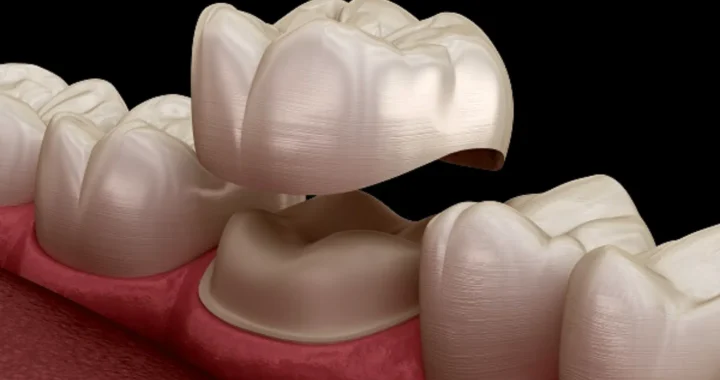Chinese vs Western Medicine: Understanding the Differences and Benefits

Hands Holding a Stethoscope and Herbs
Medicine is a field that has been studied and practiced for centuries, and it has evolved in many ways over time. There are two major categories of medicine: Chinese and Western medicine. While both approaches aim to treat and prevent illnesses, they differ in terms of their theories, practices, and philosophies. In this article, we will explore the differences and benefits of Chinese vs Western medicine.
Origins and Philosophies
Chinese medicine has a history of over 2,500 years, and it is based on the principles of Taoism, which emphasizes balance and harmony in the body. The theory of Chinese medicine is based on the concept of Qi, which refers to the vital energy that flows through the body. According to Chinese medicine, illness is caused by an imbalance or blockage in the flow of Qi, and the goal of treatment is to restore balance and promote the body’s natural healing abilities.
Western medicine, on the other hand, is a relatively modern approach to medicine that emerged in the 19th century. It is based on the principles of science and empirical evidence, and it focuses on the diagnosis and treatment of specific diseases. Western medicine uses drugs, surgery, and other procedures to treat illnesses and diseases, and it is often more aggressive and invasive than Chinese medicine.
Diagnosis and Treatment
The diagnostic process in Chinese medicine involves observing the patient’s physical appearance, listening to their voice and breath, and feeling their pulse. Chinese medicine practitioners also consider the patient’s emotional and mental state, as well as their diet and lifestyle. Based on these observations, a diagnosis is made and a treatment plan is developed. Treatment may involve acupuncture, herbal remedies, massage, and dietary changes.
Benefits and Limitations
Chinese medicine has several benefits that are not available in Western medicine. For example, Chinese medicine takes a holistic approach to health and considers the patient’s overall well-being, rather than just focusing on specific symptoms or diseases. Chinese medicine also emphasizes preventive care and encourages patients to make lifestyle changes to promote health and wellness.
Another benefit of Chinese medicine is that it is often less invasive and has fewer side effects than Western medicine. Acupuncture, for example, is a non-invasive treatment that has been shown to be effective for a variety of conditions, including chronic pain, anxiety, and depression. Herbal remedies and dietary changes are also effective treatments for many conditions, and they are often less expensive than prescription drugs.
Western medicine, however, has several benefits that are not available in Chinese medicine. For example, Western medicine is often more effective in treating acute illnesses and injuries, such as infections and broken bones. Western medicine also has more advanced diagnostic tools and technologies, such as MRI and CT scans, which can provide more detailed information about the body.
One of the limitations of Chinese medicine is that it is not always backed by scientific evidence. While many studies have shown that acupuncture and other Chinese medicine treatments are effective, there is still a lack of rigorous scientific research in this field. Another limitation of Chinese medicine is that it may not be effective for all conditions. Western medicine, on the other hand, has a strong scientific basis and is constantly evolving as new research is conducted.
Western medicine has gained widespread acceptance around the world, and it is commonly used to treat a wide range of diseases and health conditions. However, it is not the only system of medicine that exists, and there are several other traditional medical practices that have been used for centuries to treat various ailments. That’s why we are discussing Chinese medicine, which has very prominent traditions.
Chinese medicine as already mentioned is based on the principle of Qi. According to Chinese medicine, when Qi flows freely through the body, it results in good health, whereas blocked Qi can lead to illness and disease. Chinese medicine uses a range of techniques to restore the balance of Qi in the body, including acupuncture, herbal medicine, massage, and dietary therapy.
Acupuncture is one of the most well-known techniques used in Chinese medicine, and it involves the insertion of fine needles into specific points on the body to stimulate the flow of Qi. This technique is commonly used to treat pain, but it can also be used to treat a wide range of other conditions, including respiratory disorders, digestive disorders, and reproductive issues.
Herbal medicine is another important component of Chinese medicine, and it involves the use of natural plant-based remedies to treat various health conditions. Chinese herbal medicine is based on the concept of Yin and Yang, which are opposing forces that need to be balanced for good health. The herbs used in Chinese medicine are carefully selected to balance these opposing forces and restore the flow of Qi in the body.
Chinese massage, also known as Tui Na, is a form of therapeutic massage that is used to treat a range of health conditions. It involves the use of finger pressure, stretching, and other techniques to stimulate the flow of Qi and restore balance in the body. Chinese massage is commonly used to treat musculoskeletal problems, but it can also be used to treat other conditions, such as digestive disorders and respiratory problems.
Dietary therapy is another important component of Chinese medicine, and it involves the use of food to treat various health conditions. Chinese dietary therapy is based on the concept of food as medicine, and it involves the use of specific foods to treat specific health conditions. For example, ginger is commonly used to treat digestive problems, while green tea is used to treat mental disorders.
While Western medicine and Chinese medicine are different in many ways, they share some common ground. Both systems of medicine aim to improve the health and well-being of the patient, and both use a range of techniques to achieve this goal. However, Western medicine tends to focus on the physical aspects of health, while Chinese medicine takes a more holistic approach, considering the physical, emotional, and spiritual aspects of the patient.
Difference Between The Two
One of the main differences between Chinese medicine and Western medicine is their approach to diagnosis. Western medicine relies heavily on medical tests and imaging to diagnose illnesses and diseases, whereas Chinese medicine uses a range of diagnostic techniques to identify the underlying causes of illness. Chinese medicine practitioners will often take a detailed medical history, examine the patient’s tongue and pulse, and use other techniques, such as facial diagnosis, to make a diagnosis.
Another difference between Chinese medicine and Western medicine is their approach to treatment. Western medicine tends to rely heavily on pharmaceutical drugs and surgery to treat illness and disease, whereas Chinese medicine uses a range of natural therapies, such as acupuncture, herbal medicine, and dietary therapy, to restore balance and improve health. While Western medicine can be effective in treating acute conditions, Chinese medicine is often better suited to treating chronic conditions, such as digestive disorders, respiratory problems, and mental health issues.
In conclusion, both Chinese medicine and Western medicine have their strengths and weaknesses, and the choice of which system to use will depend on the individual patient and their health needs. While Western medicine is often the first choice


 Dental Crowns –Restoring Strength, Function, And Aesthetics.
Dental Crowns –Restoring Strength, Function, And Aesthetics.  One-Person Wonder: Making Waves in the Massage Industry in Gunma
One-Person Wonder: Making Waves in the Massage Industry in Gunma  How Cataract Surgery in Nashville Improves Vision and Quality of Life
How Cataract Surgery in Nashville Improves Vision and Quality of Life  Maintaining Oral Health: The Role of Dentists in Richmond
Maintaining Oral Health: The Role of Dentists in Richmond  How to Choose the Best Implant Dentist in Sheffield: A Guide
How to Choose the Best Implant Dentist in Sheffield: A Guide  How Invisalign is Revolutionising Orthodontics in London
How Invisalign is Revolutionising Orthodontics in London  Veneers: A Popular Cosmetic Solution for a Beautiful Smile in London
Veneers: A Popular Cosmetic Solution for a Beautiful Smile in London